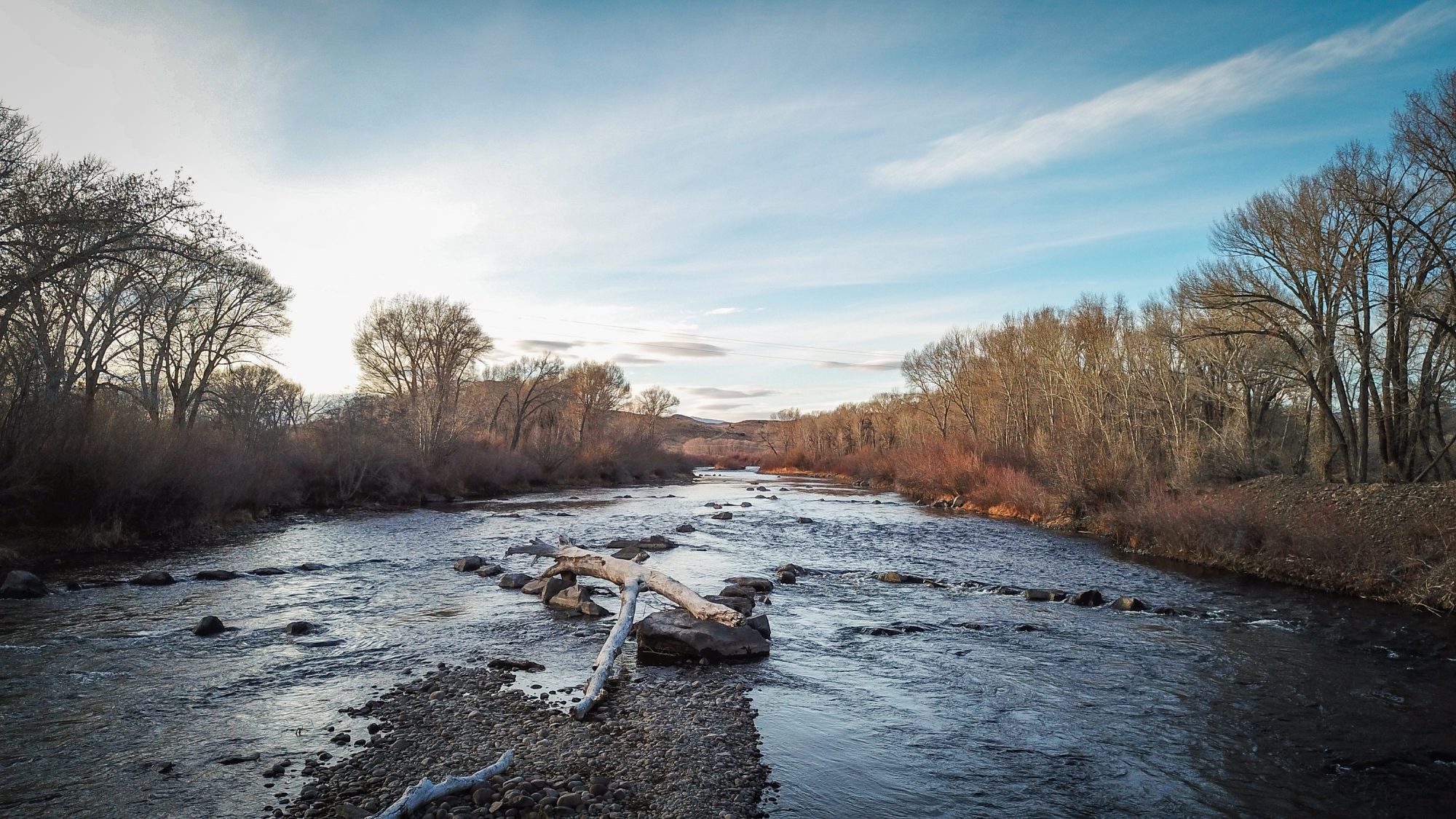Last week, Colorado’s 2022 legislative session began with a sobering reminder and call to action from Speaker Alec Garnett: “Climate change is a clear and present danger that we cannot let up the fight on.” The convening of the legislature brings us new opportunities to engage state leaders on climate and the places that are being impacted: especially Colorado’s rivers.
2021 intensely demonstrated the impacts of climate change as well as showing what solutions to increase resilience look like. With below-average snowpack, the first-ever Lake Mead Tier 1 Shortage Declaration, emergency releases at Colorado reservoirs to send water down-Basin, and the most destructive wildfire in Colorado history a mere month ago, the year illustrated the urgent need for increased climate resilience. It also saw many successes, including $20 million allocated to funding the Colorado Water Plan from the legislature and more than $14 million from the sports betting tax, and the passage of the Infrastructure Investment and Jobs Act which dedicates at least $8.3 billion to Western water.
The Water for Colorado Coalition sees many opportunities to build on this work in 2022 and the Coalition supports the Legislature addressing critical water policy issues that will ensure resiliency for our communities, our economy, and our rivers. The water world has changed, our hydrology is drier than it has ever been, it’s time for Colorado to meet the moment and begin to prepare the state for a new era in water policy. This year, the Coalition’s priorities will focus on the following critical areas to secure our state’s water future.
Capturing Federal Funding
The Infrastructure Investment and Jobs Act (IIJA) will send $8.3 billion to Western water — a once-in-a-generation investment that comes at a critical time. The funding provides opportunities to implement on-the-ground projects that will increase resilience to climate change and creates new programs and projects that provide further conservation and ecosystem restoration opportunities in the state and Basin.
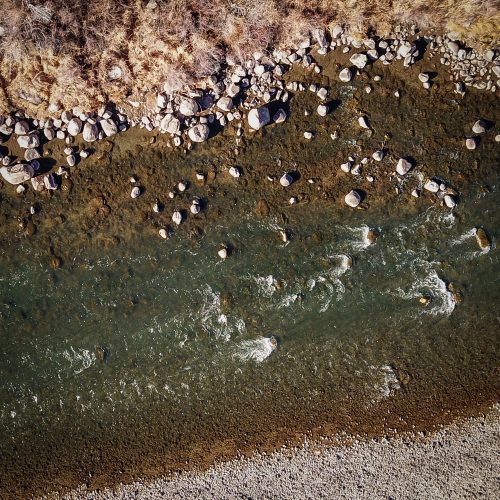
Aerial shots of Animas River, Durango, Colorado.
It is essential in the coming legislative session that we address climate driven drought and increased demand by allocating funding that will help the state be more efficient with our water supplies and enhance the resilience of our watersheds to climate change. Our coalition will work with state and local partners to capture as much IIJA funding for water as possible. The health of our drinking water supplies and rivers depends on it. From WaterSMART grants to ecosystem restoration to Colorado River Drought Contingency Plan implementation, this funding can benefit existing projects while creating space, money, and opportunities for new, multi-benefit, collaborative projects.
Much of the funding through IIJA will be provided through competitive grants. It is imperative that Governor Polis’ Administration and the Legislature act boldly to capture this essential funding before the dollars are spent in other states.
Working with the State to Secure Funding & Update the CO Water Plan
The Colorado Water Plan 7-year update is underway and will serve as an opportunity for legislators and leaders across the state to hear from all Coloradans. In his 2022 State of the State address, Governor Polis reaffirmed his commitment to updating the Water Plan “to make it more resilient and ensure that our cities, farms, and streams can thrive for years to come.”
We encourage the CWCB to enable multiple public comment periods across the state and across all socio-
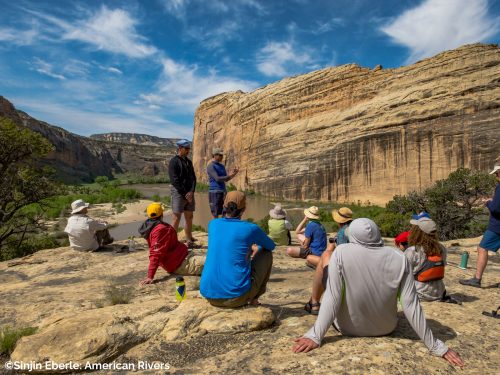
Photo Credit: Sinjin Eberle
economic areas. This includes ensuring that historically underrepresented communities have opportunities to meaningfully engage. Our rivers and water supplies are critical to every community and each Coloradan deserves the time and space to share their unique water needs. We specifically ask that the Colorado Water Conservation Board (CWCB) extend the Water Equity Task Force into 2022 to gain critical information from voices that have been traditionally left out of water planning.
Our Coalition supports policy change that ensures state agencies have the necessary staff capacity and authority to approve and allocate the influx of water funding that Colorado will see in 2022 and beyond. We specifically support CWCB capacity investments included in Governor Polis’ budget that will allow the CWCB to hire six new staff to accelerate the implementation of the Colorado Water Plan. From state funding, to stimulus funds, to infrastructure funding, we are in an unprecedented moment – funds are flowing, we must ensure our rivers continue to flow, as well. We stand ready to work with state leaders to ensure this money gets to projects and programs that will benefit our rivers and communities.
Bolstering Watershed Health
State-level action to protect our watersheds is essential. Colorado’s natural infrastructure supports both the goals of the Colorado Water Plan and state-wide resilience. As such, we must actively invest in and recognize these ecosystems for the essential services they provide.
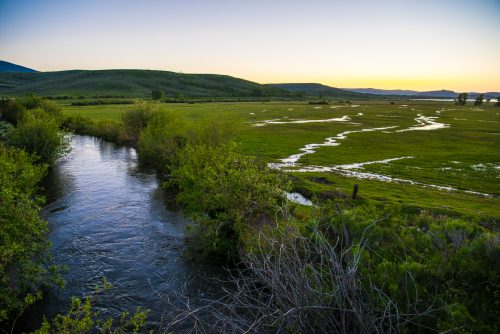
Upper Colorado River. Credit: Russ Schnitzer
State programs dedicated to headwaters restoration, watershed health, reforestation, and other nature-based solutions need both legislative support and expressed commitment to state funding. The IIJA explicitly recognizes the importance of natural infrastructure and the state must ensure that both the CWCB and state Forest Service are well-positioned to take advantage of these funds. We encourage the state to promote natural infrastructure as a cost effective, long-term solution and to help create more public recognition of the value of nature-based solutions in relation to Colorado’s goals around climate resilience. Additionally, we’ve seen the catastrophic and heartbreaking effects of devastating wildfires spurred by drought and climate change ripping through our communities. These fires not only destroy homes and businesses, but cause our watersheds to suffer long-term, detrimental impacts. We strongly support legislation that increases investments in wildfire risk mitigation strategies, including prescribed fire, and bills to strengthen our post-fire recovery response by reforesting burn scars and supporting natural infrastructure to limit the runoff and public safety issues that we see in the aftermath of catastrophic wildfires.
Protecting Natural Flows and Addressing Drought
More water in our rivers means a thriving recreation economy, healthy wildlife habitats, and more resilient watersheds, and safe drinking water. We’re working with stakeholders to develop legislation that helps prevent
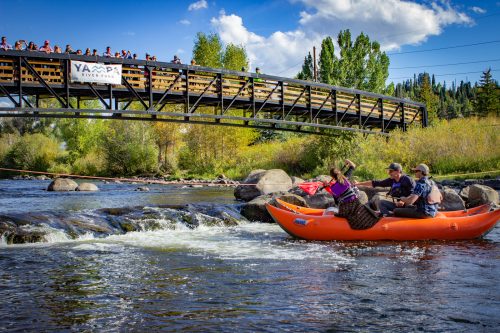
Photo Credit: Lauryn Wachs
closures of rivers to recreation due to low flows..By keeping water flowing in rivers, we can answer the challenges of drought and climate change while also sustaining the $19B river recreation economy, especially on the Western Slope.. In particular, we are crafting legislation that establishes a new community-driven process to establish recreational in-channel values (RIVR) reaches and the ability to deliver water to sustain recreational flows. Another part of this effort is removing barriers to allow for modifications of existing whitewater parks, allowing them to be safer and more environmentally friendly, as well as allowing federally recognized tribes to apply for a traditional RICD.
We additionally support legislative action that incentivizes removal of nonessential turf (such as medians, business parks, and ornamental landscaping in HOAs) across the state. We must ensure that water being used for outdoor irrigation in municipal and industrial settings is going to the most beneficial and efficient place, allowing saved water to support higher priorities for our economy and environment.
Finding creative, collaborative ways to address the impacts of drought by making the most of a limited resource will be the work of this year and beyond as we race against a changing climate.
Let the Work Begin
Never has it been more urgent to work efficiently on solutions to drought and climate change. Thankfully, myriad opportunities await us as federal funding spills into the West and new, creative bills are proposed to keep our watersheds healthy and our rivers flowing.
As Governor Polis reminded Coloradans in his State of the State address, “Because water is the lifeblood of our state… and critical to our way of life, we must work together across industries and across state boundaries to secure a sustainable water future for all Coloradans.”
Meaningful change and ultimate resilience will demand hard work and bipartisan support — the Coalition looks forward to the days ahead to make such change. Stay tuned for a follow up blog once the legislative session is in full swing for more specifics on legislation that we will be tracking this year.
